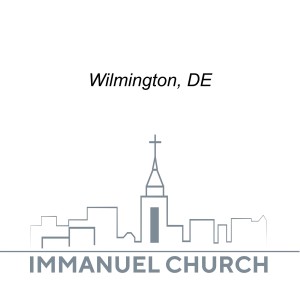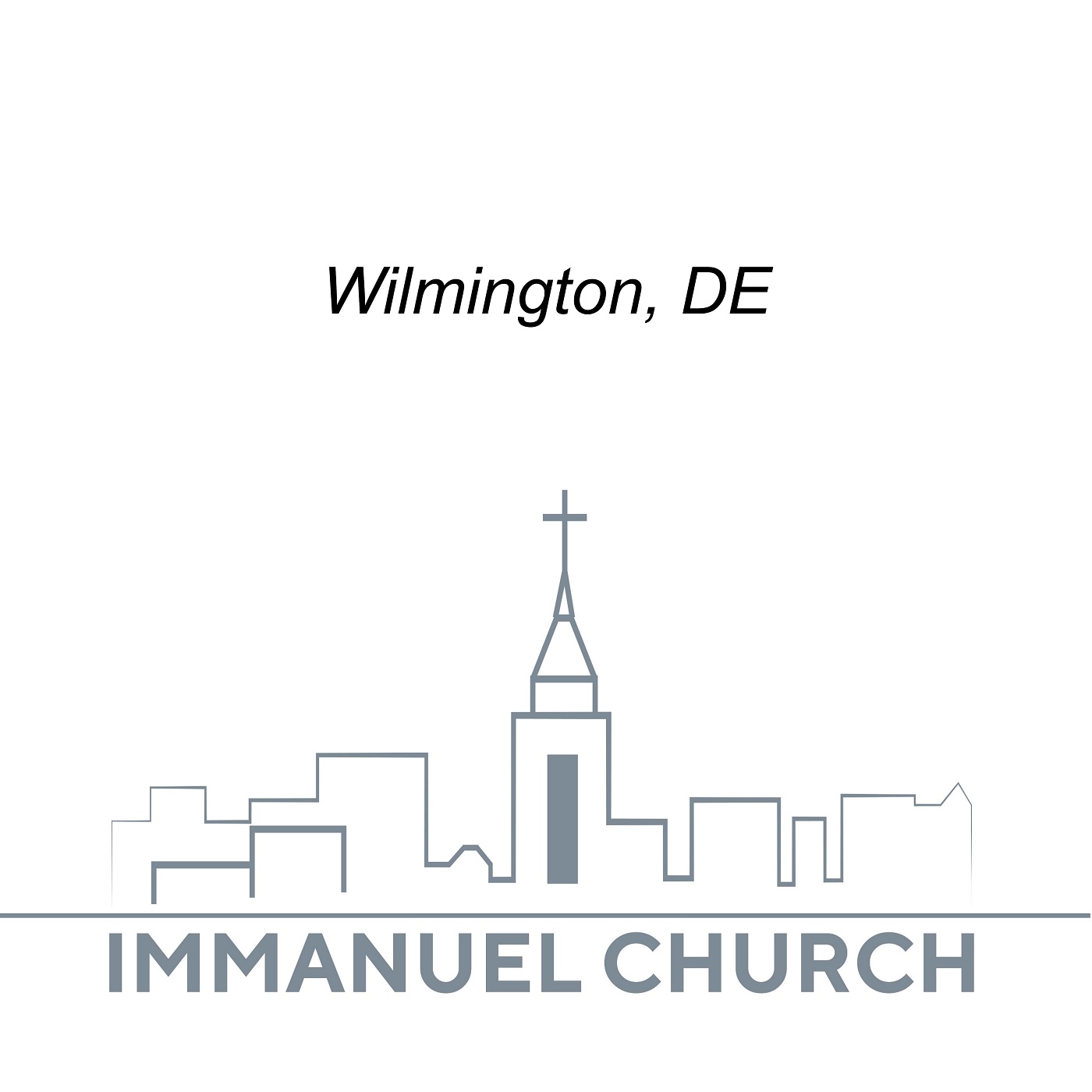Episodes

Monday Dec 07, 2020
Monday Dec 07, 2020
Today we are going to talk about isolation and Advent. Since we are in this pandemic, and since isolation has been more of a part of lives than perhaps we would have liked in 2020, I figured that an Advent devotional that deals exactly with this topic would be helpful. Most of our family Christmases will be smaller as our Thanksgiving already was. I am anticipating the sadness of that time to really hit us hard in the coming weeks, and what better way to prepare to face this than to take a deep look at Scripture, at its story, and try to face the coming holiday isolation from events that we are very accustomed to every Christmas. Just last year, I took my daughter Lydia for her December birthday to Charles Dickens land at the Macy's in Philadelphia, took her afterwards to enjoy an authentic Philly cheese steak, to top it off with seeing a play at the Arden Theatre in old city. This year, there was no ability to have a daddy daughter date. I’m sure you have a story that you can look back on from last year in December and identify many different things that you always do that you cannot do this year – and the common theme with them all is yet more staying at home, more social distancing – more social isolation than we are accustomed to.
Christianity and the Scriptures indeed have a lot to say about this topic. In this devotion, I want to work through a “biblical theology” of isolation as through the story of Scripture, as well as some systematic study peppered in concerning this theme.
To begin with, at the very beginning of our Bibles, we see that everything begins with a God who is single, yet plural. And even in the very beginning verses of our Scriptures, we find that God was not alone. In and of himself, he is one, yet three. He is not alone by nature of himself. God is not a God who isolates. In fact, by his nature that is a sheer impossibility. “In the beginning God created the heavens and the earth… the Spirit of God was hovering over the face of the deep, and God said, “let there be light…”
Robert Alter in his translation work on Genesis gives us another way to read this verse: “the breath of God was hovering over the waters” – the Hebrew word for spirit is the same for breath. “And God said…” gives us the image that God almost “breathed out” creation, as he spoke it into existence.
Knowing John 1, “In the beginning was the WORD….” And Hebrews 1 says “all things were created through him” that is, Jesus. God in his single-plurality is at work even in the first chapter of the book.
Yet Adam was created alone, initially. It was not until some recognition in Genesis 2 that him being alone was not good. He was with the animals as he named them, but as he looked around, he realized there was not anything really quite like himself, and even with the company of animals, he was alone.
Then along came Eve, and it was then that Adam was no longer alone. Then, even in their togetherness – like God, they would also become one in the union of marriage, Genesis 2:24 – “The two shall become one flesh.” So far, we see God in community with himself, and people in community with one another – and both God and humankind together in Eden.
The serpent’s work in Genesis 3 had the effect of turning everyone against one another. And what you find is essentially a natural desire to isolate from one another after sin entered into our story. Adam and Eve, due to their nakedness, hid from God. Isolation. They were scared of him, fearful probably of his judgment when the sound of his approach was heard in Genesis 3:8.
Isolation was due to the Fall – isolation from God. And the curse as it entered would have the effect of Eve desiring power over and against her husband, but he shall have it over his wife. The implication being in Genesis 3:16 conflicts of power and authority between man and woman – further relationally isolating one from the other.
Then we have exile: exile is the ultimate isolation from God, as they were kicked out of the Garden. The theme of exile is continually found throughout the Scriptures. So isolation from God is a judgment from God. We were intended to be physically with him. And when we cannot be, we can call that judgment.
Now, I can’t make this be an hour long by any means – but if we trace this further down in the Scriptures, we find that this exile theme is powerful. Sin has essentially sent this whole world into exile from God, and humans, even though we by nature desire to be with one another, are up and against one another. Violence is just another attempt to isolate yourself from someone else – like Cain did with Abel. His jealousy created in him a world where he could not imagine living in with his own brother anymore – and as with all violence, the goal is either the removal of that individual, punishment or something they have done, or a power-play to control someone else. The lack of equality amongst people, in other words, are just other versions of isolation, one of the major results of sin in this world.
And with our final theological observation: here we find at the core of intentional social isolation: a self-serving desire. Tremper Longman, in his masterful commentary on Proverbs, translated Proverbs 18:1 like this:
“The Antisocial seek their own longings, they break out against all resourcefulness.” (most translations have “whoever isolates himself seeks his own desire…”) with the idea being that when we push people out of our lives and keep them from being equal to us in brother and sisterhood, we are rejecting whatever accountability that might come from their presence in our lives. There is something you want that perhaps you know is destroying you, but you don’t care, and you know that if other people were in your life enough to see it, they would call you out on it in love, and you don’t want that. I’ve seen many a good friendship succumb to this, and many a solid relationship fall apart in like manner.
So where does Advent come into this? And now that you understand how isolation is not part of God’s design for this life – isolation from him or from people – how do we respond when in a pandemic for our own safety that we must isolate more than ever before?
God’s answer to humanity’s sinful condition, of isolation from him, of ultimately being in a permanent state of exile from God due to our sin, as Isaiah said explicitly, “But your iniquities have built barriers between you and your God, and your sins have made Him hide His face from you so that He does not listen” (Isaiah 59:2).
Advent is God’s response by actually, intentionally entering into our world as one of us. He broke our isolation from him by joining us. We didn’t really invite him. In fact, when he showed up, ultimately we were looking for someone else. That’s why we crucified him. But still God chose to chase after us and end this isolation from himself by joining us, walking around with us, taking on skin and bones like you and I, and actually becoming the Son of Man, or the Human – the True Human. He actually had a life that Adam should have lived, but sinned, a life that is representative of TRUE humanity and how things should have been.
Advent then reminds us of the lengths God went to actually be with us. It shows just how far he was willing to go to bring us back to himself. And it serves as our example to how far we should go to chase after those people who themselves do not know how much God loves them.
As we close, I am now going to address this pandemic. If isolation is part of sin, often associated with selfish desires, often a mechanism in which we can further ‘do as we please’ without the restrictive input or restraint that may come from others, or especially the judgment from God himself; if we can clearly establish the difficulty it is of actually flourishing in an anti-human state of isolation, how do we flourish in a time when we must? Especially, in contradiction, in the time of a holiday when we actually gather together often to celebrate God gathering himself to humanity through the first Advent, through his incarnation – can we really do this in an unusual state of isolation and expect to flourish?
I don’t know. I know that’s not very pastoral. There is no golden formula. However, we must recognize as Ecclesiastes does that “there is a season for everything under the sun.” In this season, and in his holiday, we are going to find ourselves more isolated from others. Advent still provides us with a reason to have hope: hope that you and I are not alone forever. Hope that things like pandemics will not be forever. Hope that Jesus’ Advent will not be his last, but rather a second one is coming. A second Advent that, as John saw in his revelation, to remake and refashion this world in order that God will never again isolate himself from humanity.
“Behold, the dwelling place of God is with man. He will dwell with them, and they will be his people, and God himself will be with them as their God. He will wipe away every tear from their eyes, and death shall be no more, neither shall there be mourning, nor crying, or pain anymore, for the former things have passed away.” Revelation 21: 3-4
In Jesus’ first advent he came to deal with sin and death. His second Advent will be the abolishment of them both forever and ever.
However, even in our hope of that future time to come, there is a hard day to live in now. And in the oncoming weeks throughout December we will be walking through continually this topic of isolation and Advent, and various ways in which you and I can intentionally live during these tricky and difficult times.
Thanks for joining us for part one of our Advent Devotional series “Facing Holiday Isolation.”
Stay tuned for the next devotion, “Mental Health, Isolation and the Incarnation.”


Comments (0)
To leave or reply to comments, please download free Podbean or
No Comments
To leave or reply to comments,
please download free Podbean App.